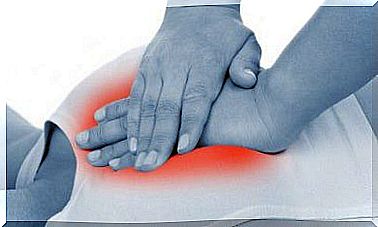Misophonia: Everything You Need To Know

Misophonia is a condition almost unknown to most. Sufferers suffer real torture due to insignificant events such as the sound of a person chewing, the falling rain or the click of a pen.
The worst part is that many healthcare professionals don’t give credit to those with misophonia. Typically, these people are labeled as manic, bipolar, or schizophrenic.
Living with misophonia is a rather difficult undertaking, both due to the lack of general understanding about the problem, and because you find yourself surrounded by unwelcome stimuli. Beyond that, there is no specific treatment for this type of selective sound hypersensitivity.
What is misophonia?
The term misophonia means “hatred of sounds”. It is a disorder in which there is a disproportionate rejection reaction in the face of everyday noises. It is defined as a pathological form of acoustic sensitivity.
When a person with this problem hears certain sounds, they immediately feel irritation, a desire to scream or hit something. Even breathing or snapping of fingers can cause feelings of anger, anxiety and panic.
Not all people affected by misophonia, however, are sensitive to the same sounds. Generally, people are more sensitive to food-related noises, such as chewing, sipping, or swallowing. But other noises, such as the creaking of a chair or the contact of a pencil with paper, can also be annoying.

Causes and symptoms
Misophonia was only recognized as a medical reality in the 1990s. However, it is a disease not yet fully accepted by science. Currently, few doctors have the skills to make an exact diagnosis.
It all points to a neurological problem. Based on the available data, patients show unusual activity in the anterior insular cortex. And apparently, there is an anomaly in the processing of emotions derived from perception.
The problem is therefore classified more as a symptom than as a clinical entity in itself. It typically appears towards the end of childhood, but cases have been recorded at any age. Beyond the extreme selective sensitivity to sounds and anxiety, there are no other visible manifestations of this condition.
There are no specific tests to determine whether or not a person suffers from misophonia. It is actually detected through the individual’s reaction to certain noises. Although many may feel bothered by noises, people with this condition show disproportionate reactions.
Living with misophonia

Misophonia disrupts a person’s life. One of the first consequences is social isolation and the loss of family support. Not tolerating the daily sounds, almost always emitted by another person, forces the subject to move away so as not to experience an annoying and intense anxiety.
The situation can be extremely limiting and prevent the person from working outside the home, as this would expose them to tons of sounds. The inability to bear noises such as typing on a computer keyboard or someone’s breathing limits the possibilities for social integration.
Those suffering from misophonia in some cases opt to wear headphones and listen to music, since in most cases there is no aversion to melodies. This allows you to isolate yourself from the external environment. Still others wear noise-canceling ear plugs or headphones.
What can be done?
There is currently no specific treatment for misophonia. However, some research is currently underway.
Pending news, the person concerned should work on the development of adaptive behaviors; or strategies to avoid social isolation, without having to suffer continuously. Psychotherapy is highly indicated in these cases.
Relaxation and meditation techniques can also help. These are effective tools for dealing with anxiety when it occurs. It is advisable to talk about it with loved ones, so that they can know and understand the situation.









